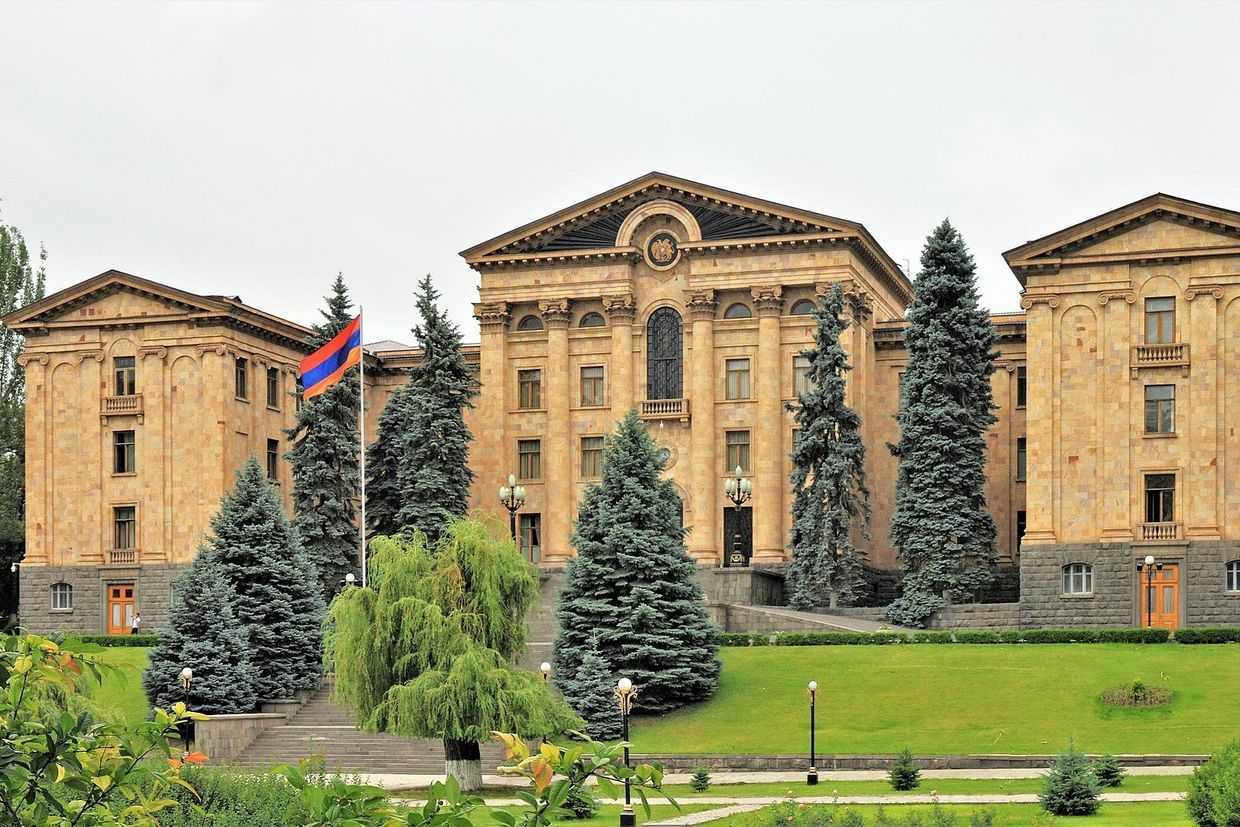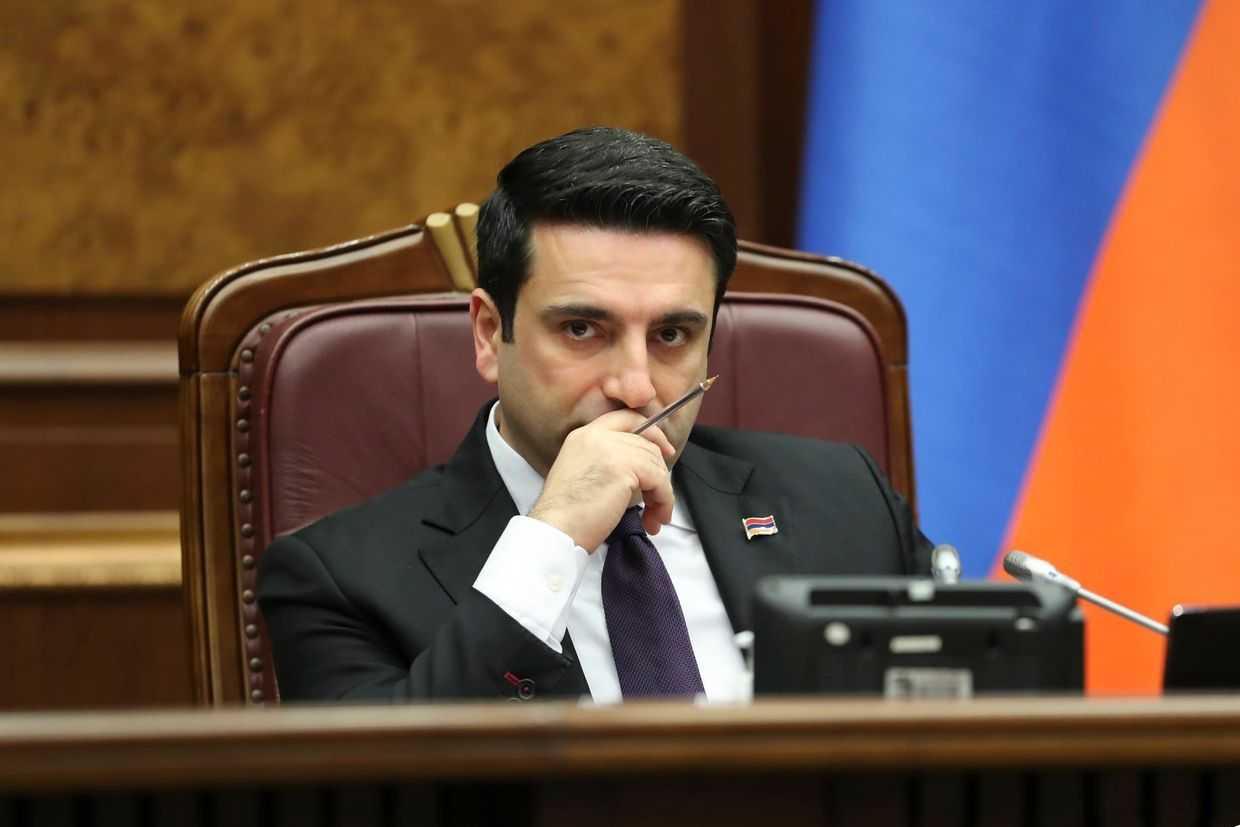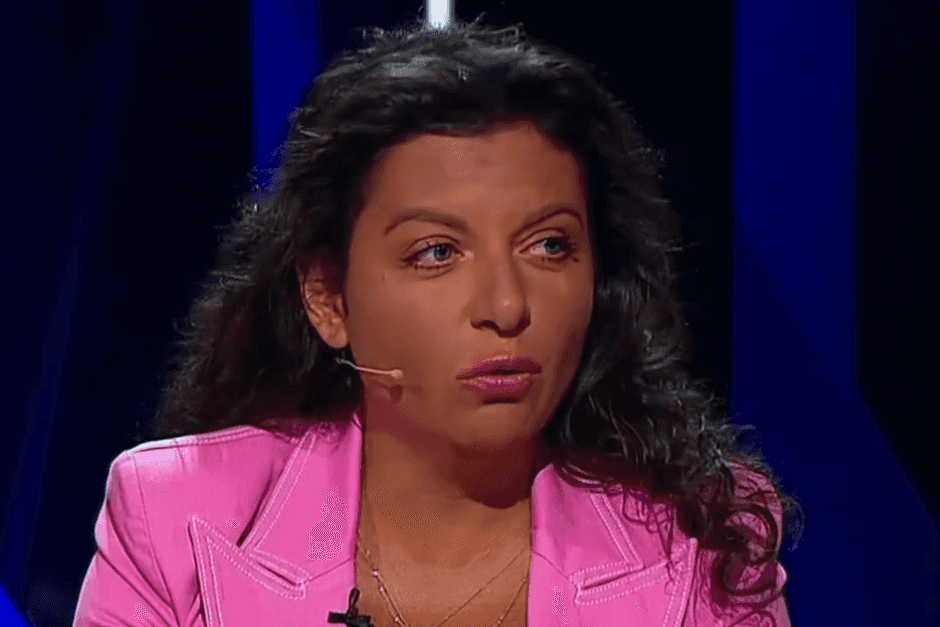
In Armenia, official reactions to the anniversary of the ceasefire that brought an end to the Second Nagorno-Karabakh War were muted, while Azerbaijan marked the occasion with celebrations — the previous day, 8 November has been established as ‘Victory Day’.
Officials in Armenia and Nagorno-Karabakh remained mostly silent, with some paying tribute to fallen soldiers at military cemeteries in Yerevan and Stepanakert (Khankandi).
While there was also mourning of the fallen, in Azerbaijan, the day was marked with a largely triumphant tone. Azerbaijan started celebrations on November 7, when the country’s leadership, including President Ilham Aliyev as well as First Lady and Vice-President Mehriban Aliyeva, visited the city of Shusha (Shushi) to celebrate the capture of the city in the Second Nagorno-Karabakh War.
The officials also took part in the inauguration of a new Ahmadbayli-Fuzuli-Shusha road.
In a speech delivered in Shusha, Aliyev praised Azerbaijan’s military victory. ‘We have restored our dignity,’ he said. ‘We will live forever as a victorious country and a victorious nation.’
‘If any force in Armenia looks askance at us or engages in revanchist tendencies, it will see our fist’, the President added. Meanwhile, in Baku, a march of thousands of troops was held from the city centre to the Military Trophy Park.
In Armenia, parliamentary opposition forces, led by the country’s second president Robert Kocharyan, held a thousands-strong rally in Yerevan’s Freedom Square, during which they slammed the administration of Prime Minister Nikol Pashinyan for defeat in the war.
In a speech delivered to the gathered demonstrators, Kocharyan blamed the authorities for ‘provoking a war’, saying that ‘the government did everything to make the war inevitable, and failed the negotiation process’
‘This government did everything to lose this war,’ he said.
Deadly shooting
The day before the anniversary, one Armenian civilian was killed and three were wounded when Azerbaijani troops fired at a group of workers repairing water pipes near Shusha. Russian peacekeepers were reportedly in the vicinity when the shooting took place.
According to Armenian authorities, the deceased and three wounded were working to repair pipes providing water to Russian peacekeepers stationed in the area.
The Azerbaijani Foreign Ministry meanwhile, has released a statement in which they claim that Russian peacekeepers ‘were not informed and were not involved in the process’ and that the activities of the four men were a ‘provocation’.
The Russian Defence Ministry has confirmed that four Armenian workers were fired upon and that a ‘ceasefire violation’ took place within ‘the zone of responsibility of the Russian peacekeeping contingent’.
‘The command of the Russian peacekeeping contingent, together with the Azerbaijani and Armenian sides, is investigating the incident’, the statement reads.
No agreement on tripartite meeting
For several weeks, news organisations in Armenia and Russia, citing diplomatic sources, reported that a Pashinyan-Aliyev-Putin summit was scheduled for the anniversary. While a Kremlin spokesperson has since confirmed that a video conference between the three leaders was being prepared, there ‘at the moment’ there was no ‘concrete understanding’.
[Read more: ‘No clear agreements’ on Pashinyan-Aliyev-Putin summit]
For ease of reading, we choose not to use qualifiers such as ‘de facto’, ‘unrecognised’, or ‘partially recognised’ when discussing institutions or political positions within Abkhazia, Nagorno-Karabakh, and South Ossetia. This does not imply a position on their status.







